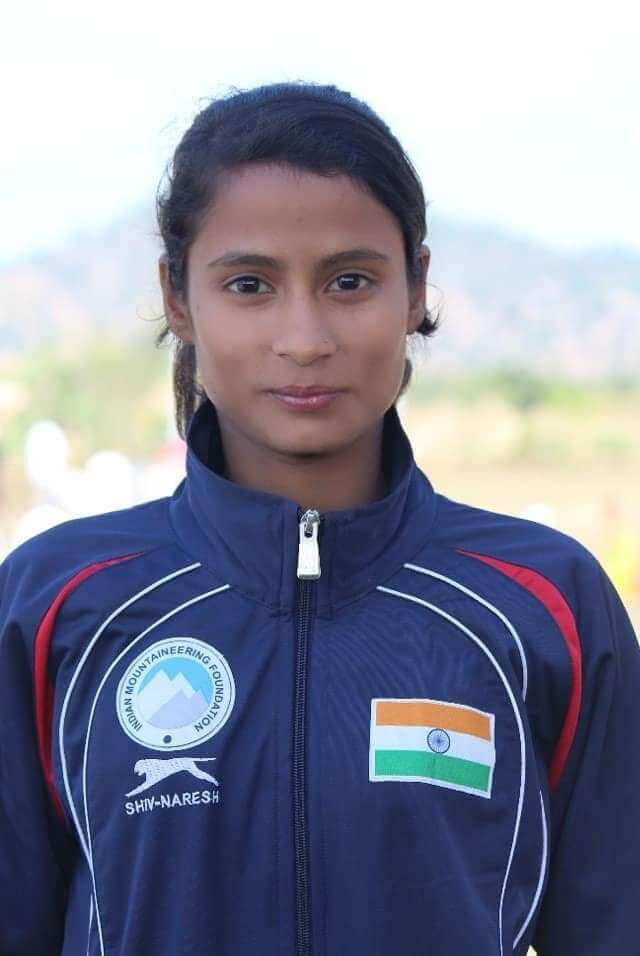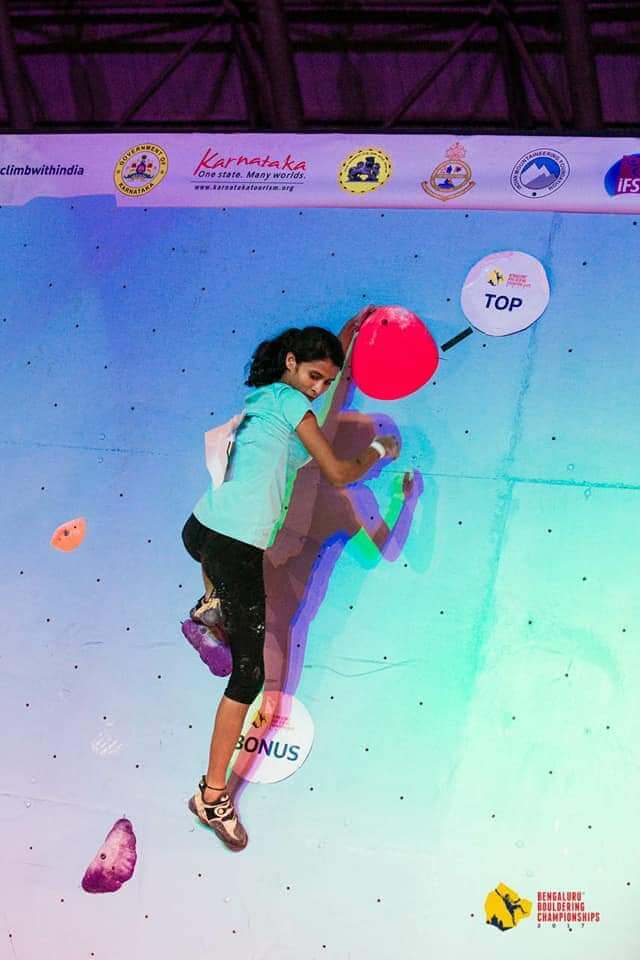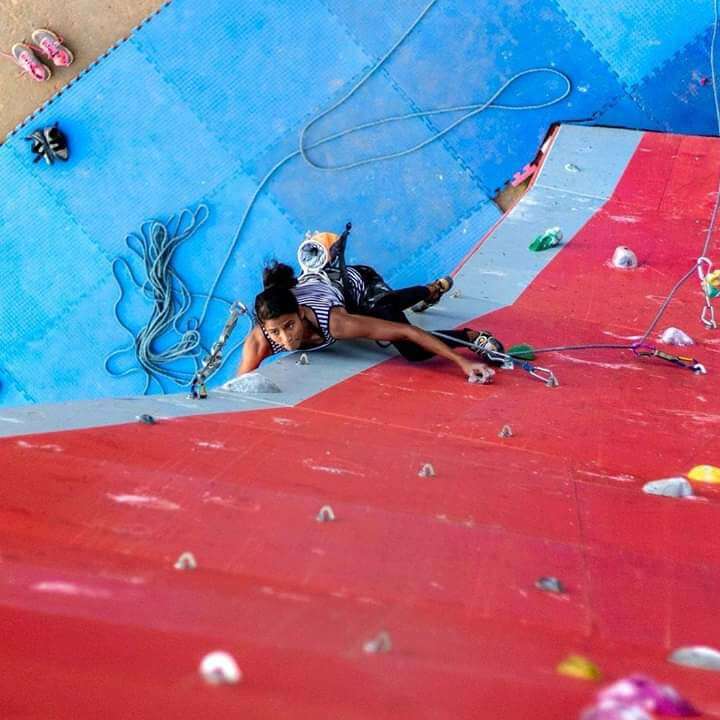Sport climbing
I kept telling myself, cancer can't deter my spirit | By Shivani Charak
Shivani is part of a new generation of women showing their mettle in sports.

Diagnosed with ovarian cancer at the age of nine years, India's no.1-ranked female sports climber Shivani Charak underwent three years of treatment and recovery. Only five years later, Shivani hailing from Jammu and Kashmir, barely in her teenage years, found an empowering outlet through sports climbing. She's part of a new generation of women showing their mettle in sports. That alone is boundary-pushing in the conflict-torn state, where indifference to women making a mark in sports has simmered for decades.
In 2018, three years after she began sports climbing at the professional level, she claimed three gold medals in lead climbing and bouldering, two silver and a bronze medal in speed climbing across nine national-level competitions. She secured a ninth rank at the Asian Youth Championships in November last year. Having finished 11th in bouldering at the senior women's Asia Cup event in Thailand, Shivani is a reminder that no barrier is big enough to limit one's growth and no hurdle can trip one long enough to chase one's dreams.

She narrates her journey to The Bridge
I began sports climbing at the age of 14 years. I grew up with my three siblings, two brothers and an elder sister. Sports climbing was as much of a psychological barrier as it was a physical barrier. My family helped me shatter the barrier, they said that they saw I had the talent to do it. Somehow, I always thought that I had the same strength, and knew I was capable of showing what was possible.
My elder sister, now 19, was the reason I took up sports climbing. Watching my sister climb walls facilitated my interest in the sport, and soon I started competing at the regional levels. I don't train under a personal coach, I do it all by myself. I usually visit Delhi Foundation for training before the competitions. Right now, I am in Bhubaneshwar at a training camp for international competitions. I am here training under foreign coach Kris Peters, who understands my strengths and weaknesses better than me.
On being diagnosed with cancer at 9 years
My cancer was detected when I was only nine years old. My stomach used to ache a lot, my father suggested I should go to the doctor for a check-up. Then after a few days, ovarian cancer was detected in an ultrasonic diagnosis. My parents did not tell me about it initially as I was too small to realise that. But I knew it was a severe disease. I knew it killed people. I was very scared.
My family had stood behind me, they used to say it is not that deadly a disease and that I would recover very soon. It was tough for me to move. I was doubtful if I can really take up sports climbing, but thankfully the doctor gave me permission. My mother did not want me to start climbing, because she was concerned about my health. But it was my father who has always been my pillar of support and motivation. I kept telling myself, cancer can't deter my spirits. No, it can't. So, I started training exactly after a year of my operation, my brothers always used to accompany me.
Pushing boundaries
Struggle is at the core of climbing and it has been a part of my own social context. Gender is a handicap here, girls in my neighbourhood are never encouraged to pursue a career in sports. The sport is yet to get some much-needed visibility in the state. Initially, there were scores of people who questioned my credibility as a woman, asking my parents to prevent me from taking up climbing. Because sports was not something for women to pursue, they thought. But that never bothered my parents, the strong and supportive ecosystem at home made a huge difference in my career.

Government support has let me down
There has always been certain romanticism associated with climbing, especially in the Valley where big mountains bring outright publicity and bragging rights, but sadly there has always been a set of climbers who had to chase the difficult path and succeed. Like here in Jammu, there is a poor infrastructure that hampers our growth despite the talent and desire to excel. Right now, the biggest issue we are facing is the state government's lack of financial support towards sports climbing. See, you have got to put money in there. That pays for coaches, the training, it pays for international competition.

Lack of sponsorships from the government has forced me to cross many a hurdle. I am forced to train in Delhi's Indian Mountaineering Foundation before I set off for competitions, it is my family who is investing a lot of money. It is me who is planning out things. I could not participate at the World Youth Championships this year because I did not have enough money. So, we often skip such competitions because of money issues. Earlier, there used to be at least two major competitions in the state, but now it has become worse.
On representing India for the first time
I was only 16 when I first represented India at the 2017 Asian Youth Championships in China. I was the youngest of all in the world. I was very thrilled to represent my country. I was not afraid but beaming with pride at that time. When I watch Indians winning medals for the country, I feel I should have been in their place. I become overjoyed watching them on TV. It makes me believe in myself, that one day I will finish on the podium. It somehow urges me to do better in the future. My aim is to win a medal for my country at the Olympics next year.






